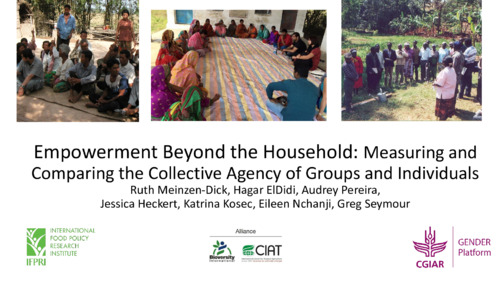Empowerment Beyond the Household: Measuring and Comparing the Collective Agency of Groups and Individuals
Abstract
Collective agency is a critical component of women’s empowerment within and beyond the household. Women often rely on groups to identify and achieve goals that advance them professionally, socially, economically and politically. However, a lack of clear measures of collective agency has hampered efforts to study when groups are effective and why, and how is group effectiveness is shaped by features of the group and factors external to the group. Lack of clarity about the underlying concepts of collective agency, collective efficacy and collective action hampers efforts to develop systematic measures. This has resulted in a limited evidence base about the effectiveness and equity of different group-based approaches and governance arrangements for empowering women of different backgrounds beyond the household. We conduct a synthetic review of the terms used; and develop a conceptual framework for collective agency by applying Kabeer’s framework of resources, agency and achievements to the collective level, and examining the literature on collective agency, collective action and collective efficacy. We also draw from the proceedings of an expert workshop on conceptual foundations and measures of collective agency, with particular attention to conceptual clarity, applicability across contexts, costs, and feasibility of application within development project contexts. We discuss the challenges of developing a common instrument to measure collective agency in theory and practice—with examples of indicators of particular constructs drawn from a portfolio of projects—and offer a list of criteria for effective and holistic measurement of collective agency

